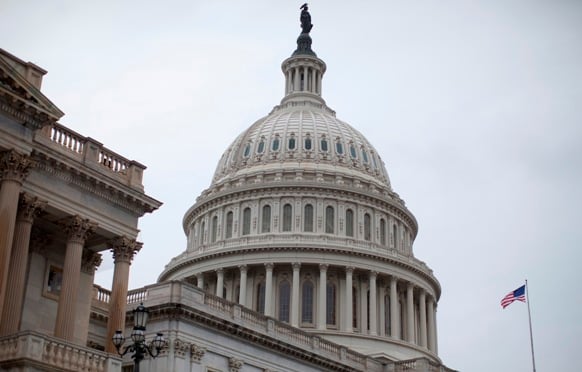Although Capitol Hill Republicans have received the most attention for trying to halt work on fiduciary duty regulations, Democrats have also expressed skepticism over the issue.
Although Capitol Hill Republicans have received the most attention for trying to halt work on fiduciary duty regulations, Democrats have also expressed skepticism over the issue.
In a recent letter to the Department of Labor, the Securities and Exchange Commission and the Commodity Futures Trading Commission, the New Democrat Coalition asked the labor agency to try again on a rule that would broaden the definition of a fiduciary for retirement plans.
The proposed regulation — issued in October 2010 — sought to streamline the five-part fiduciary test that critics say makes it too easy for fund advisers to escape fiduciary requirements. A two-day hearing at the Employee Benefits Security Administration in early March drew many investment industry witnesses who warned that the rule was flawed.
In its May 10 letter, the New Democrat Coalition asserted that the rule should be modified because the original proposal would limit access to investment education and information.
“This would result in worse investment decisions by participants and would, in turn, increase the costs of investment products, services and advice that are absolutely critical parts of a sound investment strategy for consumers,” the group of 29 centrist Democrats wrote.
It's not clear whether their qualms about the Department of Labor's fiduciary rule extend to a potential SEC regulation that would impose a universal fiduciary duty on anyone providing retail investment advice.
“The [coalition] members are waiting to see how the SEC is going to interpret the intent of [the] Dodd-Frank [Act],” an aide to one of the New Democrat leaders, who was not authorized to speak on the record, wrote in an email. “The primary concern right now is DOL's proposed definition of fiduciary duty and potential impact on access to investment advice for IRA participants, plans and others.”
Another House Democratic did address a potential SEC fiduciary rule in a March letter to the agency.
“I would urge the Commission, before it moves forward with a proposed rule, to conduct an overall cost-benefit analysis regarding consumer preferences and access to affordable products so that it can assess the impact a uniform standard might have on retail investors and the advice they receive from financial professionals,” wrote Rep. Carolyn Maloney, D-N.Y.
That stance puts Ms. Maloney in the same position as her Republican colleagues on the House Financial Services Committee, who also have called on the agency to conduct a cost-benefit study before proceeding to a regulation, which it is authorized to do under the Dodd-Frank Act.
But Ms. Maloney is not insisting on an economic analysis as a way to scuttle a fiduciary rule, according to her staff. It's just a standard metric that she wants to see produced.
In fact, following a recent Capitol Hill news conference in which Democratic leaders criticized Republicans for trying to undo Dodd-Frank, Ms. Maloney endorsed an SEC fiduciary duty rule.
“They need to move forward and protect consumers,” Ms. Maloney said. “What we're seeing [from Republicans] is almost a case of ‘let's pretend the financial crisis never happened.'”







